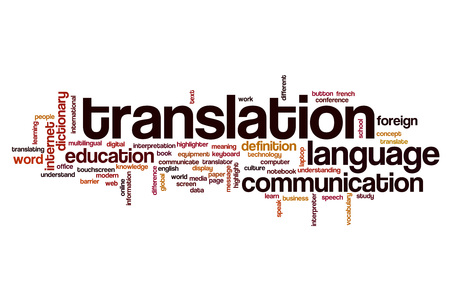In today’s interconnected world, accurate and reliable translation is critical for specialized fields such as legal, medical, and technical industries. Documents in these sectors often contain complex terminology and require a high degree of precision, as even minor errors can lead to serious consequences. This makes professional translation services indispensable for businesses, legal entities, healthcare providers, and technology firms aiming to communicate effectively across language barriers.
When seeking quality translation services for such specialized documents, it is important to choose providers who understand the unique demands of these fields. These services are not just about converting text from one language to another; they involve ensuring that the meaning, terminology, and context remain intact to maintain the document’s integrity and usefulness.
Importance of Specialized Translation Services
Legal, medical, and technical documents differ significantly from general text in that they require deep subject matter expertise alongside linguistic skills. Translators working in these fields must be familiar with industry-specific jargon, regulations, and standards to deliver precise translations. Professional translation services ensure that the final product is both linguistically accurate and technically correct.
These specialized translations often support critical processes such as legal trials, medical treatments, regulatory approvals, and product development. Therefore, quality and accuracy cannot be compromised.
Legal Document Translation
Legal translation encompasses a wide range of documents, including contracts, patents, court rulings, affidavits, and immigration papers. Each of these documents carries legal weight and must be translated in a way that preserves its original meaning and complies with jurisdictional requirements.
Professional translators with legal expertise understand the nuances of legal terminology and the implications of specific phrasing. Additionally, they are aware of local legal systems, which helps in adapting documents to the legal standards of the target country.
Certified translation services are often required for legal documents to ensure that the translation is officially recognized by courts, government agencies, or other institutions. These services provide notarization and affidavits of accuracy when necessary, adding credibility and legal validity to the translated documents.
Medical Document Translation
Medical translation is another area that demands meticulous attention to detail. Healthcare providers, pharmaceutical companies, and research institutions require translations for clinical trial documents, patient records, informed consent forms, medical device manuals, and pharmaceutical instructions.
Accuracy in medical translation is vital because errors can directly affect patient safety and treatment outcomes. Translators must be familiar with medical terminology, drug names, anatomy, procedures, and regulations related to healthcare and pharmaceuticals.
Moreover, patient confidentiality and compliance with privacy laws such as HIPAA in the United States must be upheld. Professional translation services often implement strict data protection protocols to ensure the security of sensitive medical information.
Technical Document Translation
Technical translation covers a broad spectrum of materials, including user manuals, product specifications, engineering drawings, software interfaces, and safety guidelines. This type of translation requires a deep understanding of the technical concepts and vocabulary related to industries like manufacturing, IT, engineering, and energy.
Technical documents are often complex and detail-oriented, and mistranslations can lead to product malfunctions, safety hazards, or regulatory non-compliance. Therefore, translators must not only be fluent in the languages but also have relevant technical knowledge.
Additionally, technical translation may require formatting skills to ensure that diagrams, tables, and charts are accurately represented in the target language, preserving the usability and clarity of the original document.
Benefits of Using Professional Translation Services for Specialized Documents
- Accuracy and Reliability: Specialized translators have the necessary expertise to ensure that every term and phrase is translated correctly.
- Compliance: Professional services ensure that translations meet legal, regulatory, and industry standards.
- Confidentiality: Sensitive information in legal and medical documents is handled securely to protect privacy.
- Cultural Sensitivity: Understanding cultural differences helps avoid misinterpretations, especially in legal and medical contexts.
- Efficiency: Experienced translators provide timely delivery, crucial for legal deadlines or medical emergencies.
Choosing the Right Translation Provider
When selecting a provider for legal, medical, or technical document translation, it is essential to verify their credentials and experience in the specific field. Look for agencies that employ certified translators with relevant subject matter expertise and who adhere to strict quality control measures.
Ask about their data security policies, turnaround times, and ability to provide certified translations when needed. A reputable provider will also offer additional services such as proofreading, editing, and localization to ensure the highest quality.
Conclusion
Translation services for legal, medical, and technical documents require more than basic language skills—they demand specialized knowledge, precision, and strict adherence to standards. Choosing professional translation providers ensures that your important documents are translated accurately and compliantly, reducing risks and enhancing communication across languages.
By investing in expert translation services, organizations can confidently operate in global markets, comply with regulations, and deliver safe, effective solutions to clients and stakeholders worldwide.


